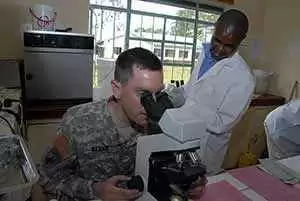
Celiac.com 08/10/2014 - Gluten comes from the Latin word for glue. It is a protein in wheat and other grains. It will elicit an autoimmune response in celiacs. Other grains like barley, rye and spelt contain gluten as well. In wheat products, the difficult part for celiacs to digest is gliadin. Some fad diets may try to claim glaidin is new, but it is not, and to dispel another myth there isn’t any wheat on the market that is genetically modified.
Celiac diease isn't diagnosed as often as it should be. In turn, individuals suffer with it for years, not knowing what to do or how to feel better. Celiac disease is often misdiagnosed for different ailments that have similar symptoms. It can seem to be mysterious, since often it takes time to find out what issue is causing the entire ruckus. There are several symptoms that overlap between celiac and other autoimmune disorders, like Type 1 diabetes, IBS, Crohn's and Hashimoto Thyroiditis. Celiac disease and other autoimmune disorders are known to have neurological effects that sometimes result in ataxia, numbness and pain, so Lupus, rheumatoid arthritis or similar disorders often get confused for celiac.To make it more confusing some autoimmune disorders can be triggered by untreated celiac disease.
Celiac.com Sponsor (A12):
Celiac is a genetic disease that is not contagious, but it does medically require a gluten-free diet. An individual with celiac must be careful to read labels on all products they consume. They must be aware of co-mingling of food ingredients in preparation of their meals and must be diligent to not ingest a crumb of gluten!
There are individuals that don't have the genetic makeup for celiac disease, but yet seem to be unable to digest gluten. Those individuals are considered gluten sensitive. There unfortunately are no tests or strict criteria to diagnose gluten sensitivity, according to a recent Webinar from Open Original Shared Link. The gluten sensitivity issue is not yet as clearly defined as celiac disease. Some individuals with gluten sensitivity do have a problem digesting gluten, but it often is just not as severe as the gluten autoimmune reaction that happens to those with celiac disease.
If you feel you may need a gluten-free diet, do not start one until you see a doctor who will likely recommend that you get screened for celiac disease. A celiac diagnosis begins with a blood test. If the test is positive then your doctor may direct you to a specialist for more testing, and after diagnosis send you to visit a Registered Dietitian or advise you to start a gluten-free Diet. Again, please do not start a gluten-free diet before your doctor does a test for celiac, it may make your test results inaccurate.









Recommended Comments
Create an account or sign in to comment
You need to be a member in order to leave a comment
Create an account
Sign up for a new account in our community. It's easy!
Register a new accountSign in
Already have an account? Sign in here.
Sign In Now